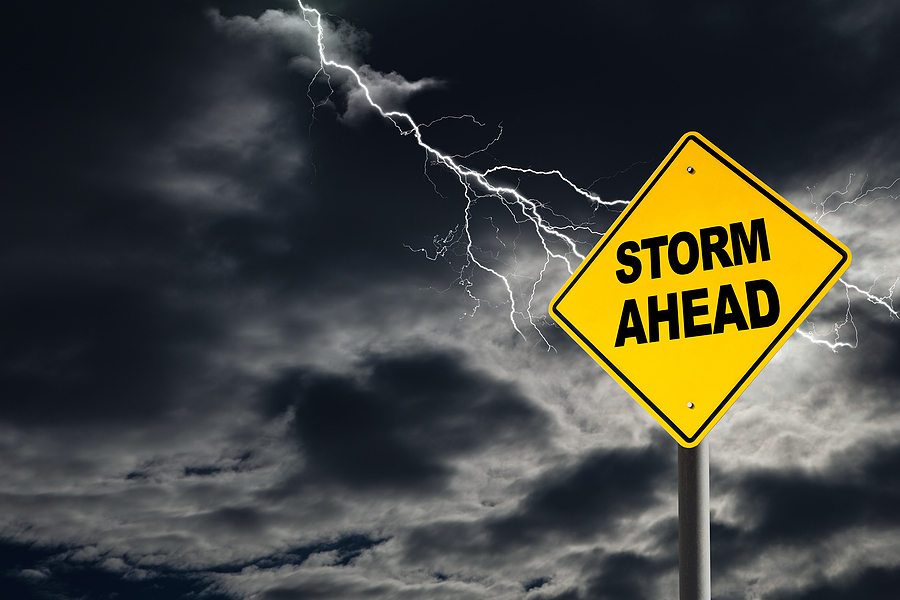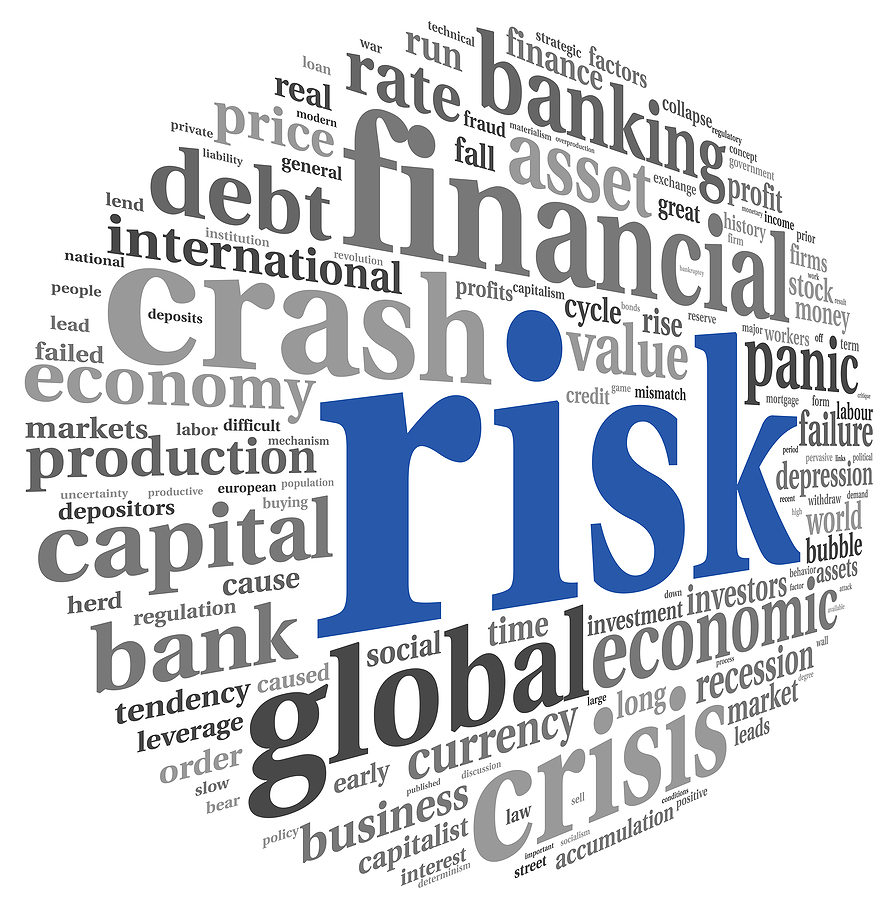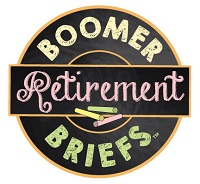Remain calm, cool, and collected during times of great investment uncertainty and political drama (Part 2)
All the while we’ve been saving for retirement, we’ve been exposed to financial risks. Everything from market volatility to inflation. From not saving enough to spending too much. And sometimes, unexpected and unwelcome life events that affect our financial picture. But it’s not until we reach the pinnacle of our careers and start retirement do those risks take on greater importance. And become more meaningful. To put it bluntly, we end up asking retirees to do the impossible when it comes to managing financial risks throughout retirement.

With Grace and Good Humor. Really?
With little real protection, retirees are expected to ride out every economic storm. They should simply handle increasing prices without a paycheck. And know when to hold ‘em and when to fold ‘em with grace and good humor. Well, it’s not so easy!
Retirees are not humored to be asked to do the impossible. I am frequently in my Town Hall doing volunteer work. I hear firsthand how frustrating it is for our seniors to afford their rising property tax bills. The reality is that today’s 80- and 90-year-olds were not preparing properly for living in the 2020’s. But they had no way to know the world would be so dramatically different.
Let’s learn from those who retired years and decades ahead of us. See how we can take a page from their real-life experiences. That should allow each of us to better plan for very real risks to our future income
Today’s Retirees Face a Whole Host of Risks

Unlike the last 40 years, retirees today feel more threatened than ever. The risks they face are difficult ones to navigate and come out the other side successfully. Meaning that they’ll have sufficient income to last their lifetime. And perhaps something to leave as a legacy.
In part 1 of this post, I covered risks about longevity, needing a budget, the debt problem among older Americans, and health as we age.
Now, let’s look at three other external factors that add up—and against—retirees: political, geopolitical, and high inflation risks. These risks make stretching the dollar harder than in any time since the great Depression. Adding insult to injury, the oldest Boomers have entered difficult round number two in their retirement. They retired into the great recession of 2008 – 2009. Most rebounded to some extent. And now the challenges to their finances are more precarious than ever.
Yet again, we’re asking retirees to do the impossible.
Political Risks Are More Potent Today Than in the Past
Today’s political climate is generally hostile, combative, and uncooperative in Washington. It’s hard to miss the drama unfolding at every turn. Yet, the implications of the latest policymaking on individuals who spent their lives saving for a well-earned retirement is largely ignored.
For retirees and near-retirees, it is terribly concerning when the lawmakers threaten to cut Social Security. Or dismantle the very underpinnings of our retirement social insurance system.
When talking to people on either side of retirement, one concern tops the list: Social Security’s demise. Social Security is a “pay-to-play” funded program. It is well-funded through weekly payroll taxes. However, it is not 100% funded with those incoming dollars. Over $1 Trillion is deposited into Social Security every year.
Yet concerns run high. Sadly, most are convinced Social Security is going bankrupt. There’s a lot of talk about the pending doom of this social safety net, but no talk of how retiree’s bills will get paid if the program implodes.
It’s long overdue for Congress to stand up and vote on the best alternatives already on the table to shore up this most critical income source for retirees.
Geopolitical Concerns Are Unsettling

At best, most older Americans feel unsettled with the increase in violence. Both on the home front with so many mass shootings and internationally. Russia’s invasion into Ukraine continues. The bravery of the Ukrainians is as honorable as it gets. But the fear of the outcome is upending security in all of Europe.
Add in tensions, threats, and trash talk from North Korea and China, and anxiety in the Middle East, and we have a formula for a disaster.
All of this uncertainty creates more challenges for retirees. How can they effectively invest their money for such an uncertain future? What should they anticipate? Higher taxes? Likely. Higher prices? Already seeing that with supply chains disrupted. Increased fraud and identity theft? Absolutely.
We are all more intricately connected than at any other time in history. All of us live in a global world and need to learn how to navigate it better. We will. But again, this is asking a whole lot—the impossible for many—from retired folks.
Inflation Erodes the Value of Investment Accounts, Yet Isn’t Reported
Investment companies report nominal returns on investment statements. Yet it’s “real” returns that more accurately reflect the value and purchasing power of money. Seeing a seven percent nominal return year over year on a portfolio may sound really good. But, when inflation is running at say 5.5%, the real return of an investment portfolio is only 1.5%. Not so impressive now.
The risk to a retiree’s portfolio, then, is the combination of investment performance and inflation. Ideally, high nominal returns coupled with low inflation help ensure long-term success. However, it is impossible to control the markets.
And the world looks a lot riskier when Washington is in disarray and the global stage is suffering from ongoing wars.
Those who spend all day every day steeped in the detailed world of high finance can’t get the forecasts right. Why then should individual, wonderful, regular retirees be asked to figure these risks out for themselves? I do wonder why anyone thinks that’s a good idea. Why do we continue to ask retirees to do the impossible?
Retirees Feel Inflation Impacts Deeply
In addition, stubborn inflation hits retirees hard in everything from groceries and gas to healthcare and heating oil.
We tend to focus inflation risk on the increasing costs of goods and services. It’s an economic concept. Until you have to pay your bills as a retiree. It’s easy to see the impact of inflation in the sheer size of our electric bills or costs of eggs and sugar.
Costs are high this year. Inflation looks like it’s coming down somewhat, and that is certainly encouraging. But that just means the ongoing rising costs will increase at a lower rate. The actual costs at the grocery store won’t reset to pre-2020 prices.
Retirees also feel the impact of inflation on increases in their property taxes, making it more challenging to stay in their homes. Further, higher costs of Medicare premiums chew up much of the cost-of-living adjustment on their Social Security checks.
Juggling all these risks is asking retirees to do the impossible.
We’re Not in a Recession. We Are in a Recession. Well, Which Is It?
As we were emerging from the global COVID-19 pandemic, a new prediction was on the horizon: a US recession. Some economists predicted a recession was imminent. Others hedged a bit. And now, two years into the “inevitable” arrival of a recession, the tarot card readers predict a recession to come in late 2023 or early 2024.

Goodness, that’s a lot of unnecessary talk and inaccurate prognosticating. Recessions aren’t forecastable. They aren’t hurricanes and blizzards that the meteorologists see forming a week or two in advance of their arrival. Or predictable phases of the moon.
There are simply too many factors and counter-factors at play. In a highly sophisticated, developed economy it’s impossible to forecast something as complex as a recession. Add in a globe seeming like it’s on fire? Still can’t predict a recession.
Sure, there are leading indicators and possible scenarios. But mostly, at this point in time there’s just a lot of noise. It’s been four years since the first predictions of a recession. So far, it’s relatively bright and sunny on the economic front.
Let’s stop creating more uncertainty than necessary. Especially for retirees and those closest to retirement.
Periods of High Uncertainty Call For 4 Reasonable Approaches
There are all kinds of financial risks retirees will face over some 30 years. Life is full of uncertainties. Yet we’re asking retirees to do the impossible in more ways than younger, working folks. Just meet the nearly impossible task of remaining calm while generating sufficient cash from your own assets. Be flexible. Accept the vagaries of economic cycles.
Keep in mind that the most highly educated and informed people in the world of investments and high finance don’t get this stuff right. The pension actuaries and insurance experts can get close and hedge against risk. But they can’t predict an exact outcome. Leading economists and academics can take their best shot. They’ll try to determine what to plan for based on theories and concepts.

Retirees are asked to predict their future using a rear-view mirror. A very tall order, indeed. So, what’s a non-financial, regular retiree to do to be successful?
Asking Retirees to Do the Impossible Takes 4 P’s
Here are four key words to remember along with reasonable approaches to be considered. The first two are most important:
- Patience—Stay calm in the midst of the uncertainty storm. Be involved, read, stay in tune with daily activities from the experts. But more importantly, keep your eye on the horizon. Review your investment portfolio once or twice a year. Have sufficient cash on hand to meet your expenses. Be patient when things are going sideways. They will right themselves once again.
- Perspective—Those in their mid-50s and older remember inflation from the late 1970s through the late 1980s. It was a decade of real cost increases and financial stress. Gasoline shot up to more than a dollar per gallon. Mortgage rates soared to 15% and higher. They’ve seen extreme and extended inflation before. Keeping these economic cycles in perspective will help retirees manage through today’s uncertain times.
Numbers 3 and 4 Should Sound Familiar
- Planning—There’s simply no way around the need for a plan. A plan for how you’ll create income without a paycheck. A plan for where you can make tradeoffs when times are financially unfavorable. Perhaps even a plan for working longer so your retirement future will be better able to weather future storms, risks, and shocks.
- Practicality—Throughout retirement, keep a practical eye on your own ability to create an income. There’s no need to dwell on the yo-yo of your account balance. Reevaluating why your investments aren’t holding up might be a practical move to make. Looking for advice from those who spend all day deep in economic and investment analysis is also a good idea.
For most, retirement won’t be a straightforward path. It will be filled with adventures and interesting opportunities. In times when things are uncertain, remain calm and control what you can. It may seem impossible to be successful, but many retirees have already found a pathway to success.
Additional Resources to help manage the many financial risks retirees face
Tracking inflation is a monthly endeavor by the Bureau of Labor Statistics. Get the latest look at rising or falling costs on the BLS website.
To see what’s happening in Washington and the bills that are underway, you can see the list at Congress.gov/most-viewed-bills. Always interesting to see the focus from our members of Congress.



